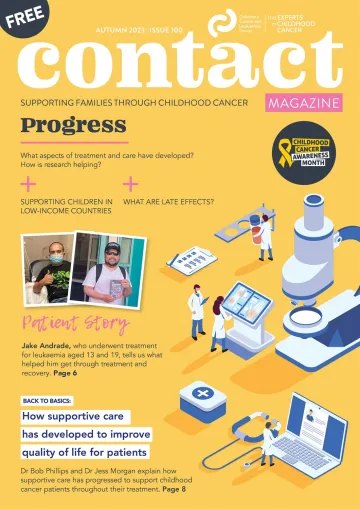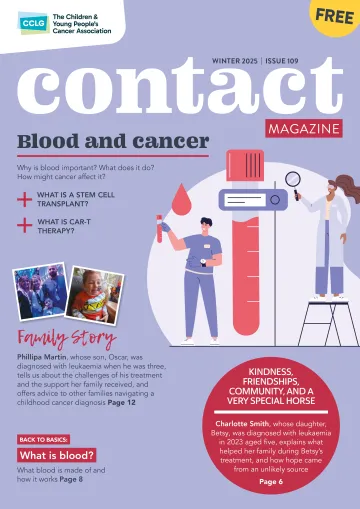Paediatric Clinical Psychologist at Birmingham Children’s Hospital & CCLG member
Q: Tell us about your career so far?
A: I always knew I wanted to work with children but wasn’t sure in what capacity. Work experience in a school for children with Special Educational Needs led me towards psychology and, after qualifying as a clinical psychologist in 2010, I took up a post at Birmingham Children’s Hospital where I’ve remained since. I’ve primarily provided support to children and young people with cancer, most recently within the neuro-oncology team. My role now is primarily provision of neuropsychological assessments for young people who have had treatment for a brain tumour. I’ve recently finished a qualification that allows me to call myself a paediatric clinical neuropsychologist – someone who specialises in understanding the links between the anatomy of the brain and behaviour.
Q: Tell us about your role in supporting children and their families affected by childhood cancer?
A: My working life is incredibly varied, and I’m privileged to work with children, young people and their families while they’re being treated for cancer and beyond. My role now mainly involves working with young people and their families to conduct assessments of their cognitive functioning (learning, reasoning, remembering, problem solving and attention) and considering this in relation to the type of tumour they’ve had, where in the brain this occurred and the treatment they received. We use these assessments to highlight young people’s strengths and weaknesses, consider what strategies might help them and how this information might be useful to them, both at home and in education.
Previously, my role has been more therapeutic in nature, meeting with young people and their families to consider how their diagnosis and treatment has impacted them and any challenges it might be causing them (for example, taking medications, managing the reactions of peers to changed appearance, to name just two of many different reasons), and working with them to think about how they may be able to try different strategies to overcome these challenges. Sometimes my work simply involves providing a safe, containing space for young people and their families to talk through their experiences and what they mean to them.
Q: How can psychologists help them make progress?
A: Psychologists can listen and help young people and families to process and make sense of their experiences. Often, families say this is a useful way of helping them to reflect on where they’re at, where they’d like to be in the future, and how they can make progress towards their goals. Living with cancer shouldn’t prevent young people from being the person they aspire to be.
Q: What’s the most rewarding thing about your job?
A: I love seeing people discover the benefit of talking about their experiences. Often it can, understandably, be really hard to talk about things that are difficult or scary. But I hope that by providing a safe space where there’s nothing that can’t be said, people can try out speaking about things they’re finding hard and see how it feels.
We use these assessments to highlight young people’s strengths and weaknesses, consider what strategies might help them and how this information might be useful to them.
Q: Do you have a message for children and their families affected by childhood cancer?
A: It may sound like a cliché, but “it’s okay, to not be okay”. No one can be expected to manage the demands and challenges that come with a child’s cancer diagnosis while also remaining upbeat, positive and in control of their emotions at all times. It’s okay to take some time to breathe, take part in activities that provide you with a bit of space (even when those things may be seemingly very small – like a cup of tea, or five minutes fresh air) and seek support from family, friends or professionals. Often, talking about the challenges that you’re facing with someone who can truly listen can be helpful.
From Contact magazine issue 100 - Autumn 2023


